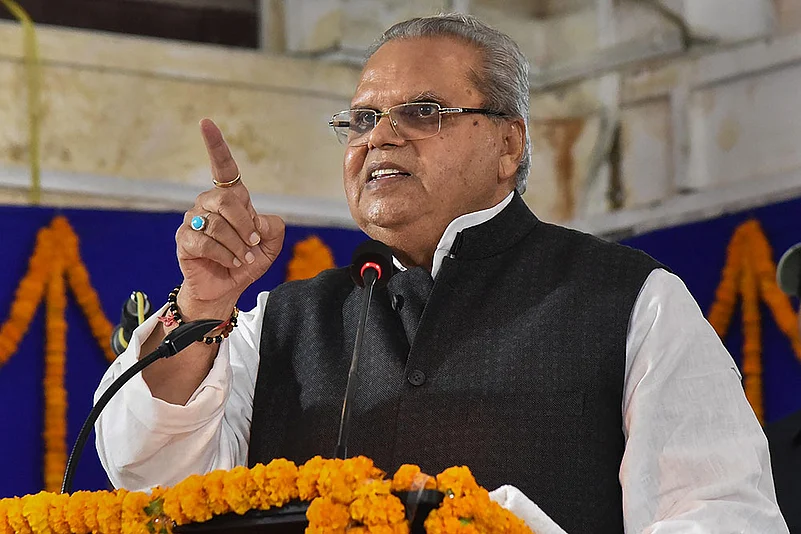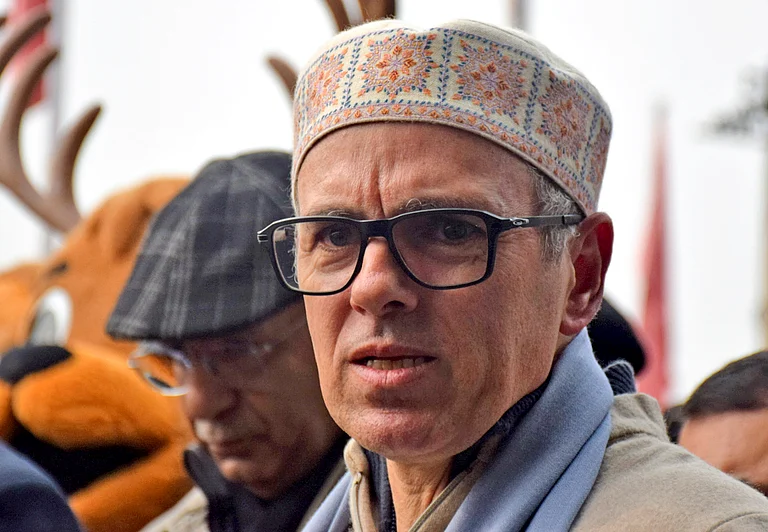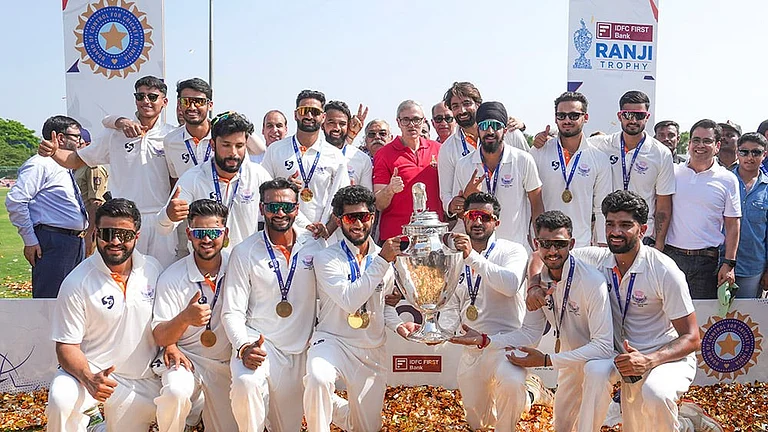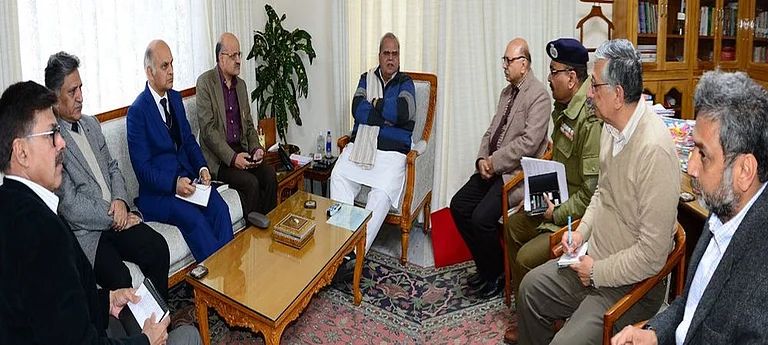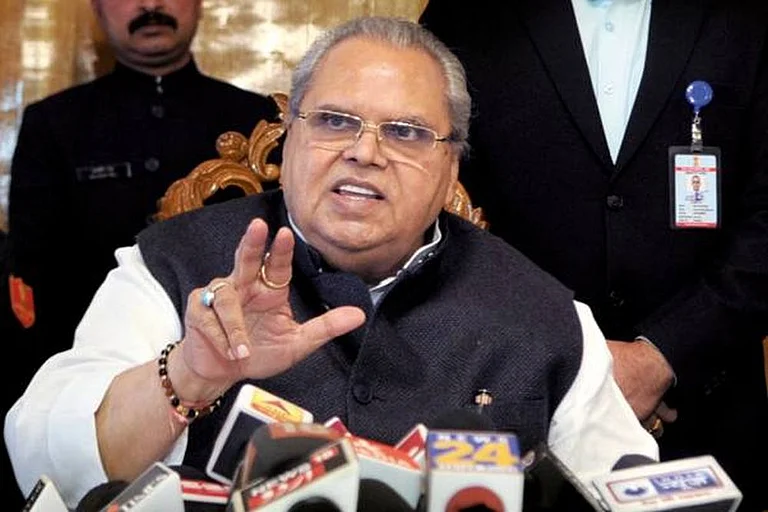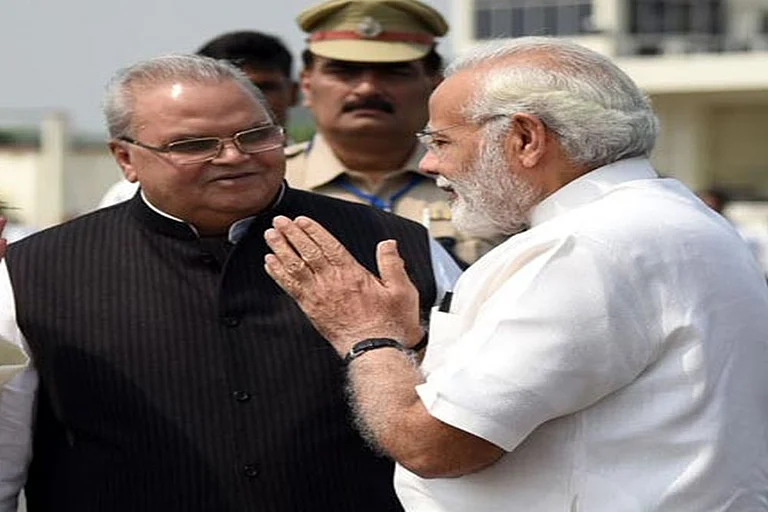
Summary of this article
Satya Pal Malik was governor of Bihar, Goa, Meghalaya and J&K.
The Pulwama attack marked a turn in his relations with the Centre.
Always maintained a son-of-the-soil image, kept close to roots.
Satya Pal Malik, seasoned politician and former governor of Goa, Bihar, Meghalaya and Jammu and Kashmir, passed away on Tuesday leaving behind a legacy that defies categorisation. Known for his outspoken nature, Malik had, in recent years, emerged as a rare establishment figure willing to publicly criticise—even challenge—the central government’s policies and Prime Minister Narendra Modi. That won him friends, but also made him an undeniably polarising figure, intensely disliked by some who saw his views as suspicious.
Malik’s stint as Governor of Jammu and Kashmir was particularly controversial, as it coincided with the Centre’s decision to revoke the state’s special status and statehood. While he supported that move, it was the Pulwama terrorist attack of February 2019 that had turned him into a vocal critic of the central government. He argued that the attack, which led to the deaths of over 40 CRPF personnel in Kashmir, was preventable—a consequence of intelligence and security failures. His willingness to speak out on such matters, even when it put him at odds with the powers that be, made him both a figure of admiration and resentment.
Ironically, his death came on August 5, the sixth anniversary of the abrogation of Jammu and Kashmir’s special status, a political moment he had been tasked with defending but would later appear disillusioned by.
Beyond his political career, what made Malik stand out was his deep connection to his roots. Growing up in the Baghpat district of Uttar Pradesh, he preserved his ties to the land even after he migrated to Delhi, and agrarian struggles remained at the core of his identity. In recent years, he spoke openly about how this background led him to become a critic of the very government he had once supported. His outspoken support for farmers during the 2020-21 protests against the controversial farm laws, resonated with many in his hometown in western Uttar Pradesh.
At one point, farmers from Baghpat decided to march towards Delhi after a rumour spread that he had been arrested. It was a false alarm, but highlighted how a section of his community strongly stood behind him, considering him fearless.
Despite health struggles, including heart surgeries and other ailments, Malik remained committed to his political work and kept making headlines for his blunt, unapologetic remarks. He was working on writing a book, which he would say was a tell-all about the inner workings of government, but he kept the manuscript under wraps—“It’s somewhere far from my home, under lock and key,” he would say. This would make many wonder if he was a truth-speaker as well as a bearer of many secrets.
He went from being insider to someone who might be regarded a whistleblower. He embraced this new identity fully, much to the discomfort of those he had once worked with.
Malik’s early political life was shaped by socialist ideals of the time. He started with former Prime Minister Charan Singh’s Bharatiya Kranti Dal, a party rooted in agrarian ideology. Later, he joined parties emerging out of the Janata Dal, which were champions of federalism, social justice and rural empowerment. He joined the Indian National Congress and later, the Bharatiya Janata Party as well, but never let his deep-seated belief in rural India waver. In fact, in recent years, he confessed that his anger with the BJP resulted from a desire to protect farmers and agriculture.
His departure from the Congress was driven by his growing frustration with its internal workings, even though he was once impressed by Indira Gandhi’s style of leadership.
He was known for speaking his mind, no matter the consequences, even when it came to calling out the government. He made allegations of corruption against “top BJP leaders”, particularly in Goa and Jammu and Kashmir and said the government’s handling of agricultural reforms as flawed—benefiting corporate interests over farmer welfare. These accusations were as controversial as they were bold, and they marked Malik as someone who wasn’t afraid to challenge the system he was part of.
Despite his polarising nature, Malik was a man of principle, often drawing on his rural upbringing to make his point. His predictions, including his forecast that the BJP would fare worse in the 2024 Lok Sabha elections, demonstrated that he was no typical politician. He was, by nature, unpredictable—someone who could surprise even those closest to him. His allegations about corruption were just one part of his legacy. He was also aware of the personal toll that politics and his outspokenness had taken on him, often talking about the CBI raids on his property and the unsettling surveillance he felt as one who had turned from insider to outcast.
Satya Pal Malik was, in the end, a politician who defied easy labels. He was a fighter, a whistleblower and, at times, a frustrated insider who, despite numerous setbacks—both personal and professional—never stopped speaking out. His willingness to stand his ground, whether in the face of health issues, political opposition or personal threats, made him a figure who will not be easily forgotten.
His lasting image will remain one of him from late May 2025, in which he is seen hospitalised at Ram Manohar Lohia in Delhi, plugged into machines and barely conscious, hours after the CBI filed a chargesheet against him and others in the Kiru hydropower project in Kashmir.


